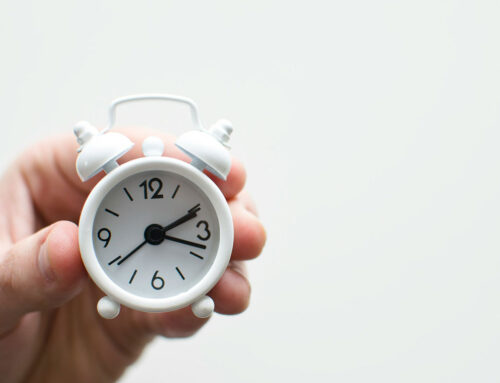If you’re suffering from Anxiety, you’re not alone. In fact, of all the mental health conditions, anxiety disorders are the most common. What’s more, some people don’t recognise their anxiety symptoms as a sign of a treatable disorder. As a result, they never seek help. But here’s the good news: anxiety disorders are highly treatable. In fact, many people who receive treatment for their anxiety find that their symptoms go away completely. One of the most effective treatments is hypnotherapy for anxiety.
So what is anxiety? What is hypnotherapy? And more importantly, does hypnotherapy work to treat anxiety?
What are anxiety disorders?
Anxiety disorders are a type of mental health condition characterised by feelings of anxiety, fear or worry. These feelings can be so strong that they interfere with your day-to-day life.
It is a normal emotion that everyone experiences at some point in their life. It’s our body’s natural way of preparing us to deal with potentially dangerous or threatening situations.
However, for some people anxiety can become more constant and start to interfere with everyday life. When this happens, it may be a sign that you’re experiencing an anxiety disorder.
There are many different types of anxiety disorder, including:
Generalised Anxiety Disorder (GAD)
People suffering from GAD are affected by anxiety throughout their daily life, negative thoughts are persistent and excessive and are rarely focused on any one object or situation.
Social Anxiety Disorder (SAD)
Social anxiety is an intense anxiety that arises in social situations, such as meeting new people, public speaking or going to parties where self-consciousness takes over. Fears of being judged, criticised or humiliated can be so strong that people will go to great lengths to avoid such situations.
Specific Phobias
Anxiety triggered by extreme fear of a specific object or situation, such as heights, snakes or flying can take control of people’s lives, dictating where they go and what they do. Exposure therapy is an effective treatment for phobias, but for some people, the fear is so overwhelming that physical sensations (pounding heart, panic attacks) can be triggered just by thinking about the object of their fear.
Panic Disorder
A disorder characterised by a recurrent and unexpected panic attack. A person with panic disorder may also experience agoraphobia, which is a fear of leaving home or being in situations where escape would be difficult.
Agoraphobia
This is the fear of open spaces or situations from which escape would be difficult, such as being in a crowd or on a bridge. Agoraphobia is often linked to depression and anxiety.
Obsessive-Compulsive Disorder (OCD)
OCD sufferers try to overcome anxiety caused by unwanted, intrusive thoughts (obsessions) by performing certain behaviours or rituals (compulsions). This form of self-hypnosis helps the individual to feel calm but the OCD becomes entrenched over time. This heightens the anxiety level and the cycle continues.
Post-Traumatic Stress Disorder (PTSD)
PTSD usually occurs after a traumatic event, such as a natural disaster, a car accident, rape or military combat. It is characterised by intrusive memories of the event, nightmares, avoidance of reminders of the event and increased anxiety or hypervigilance. An effective method to help PTSD bring about positive change is a talking therapy called the Muss Rewind Technique. It is also safe to perform while on medication.
What is clinical hypnotherapy?
Hypnotherapy is a type of psychotherapy that uses hypnosis. It falls under the umbrella term of complementary and alternative medicine (CAM) and is not yet accepted as standard medical care in the NHS. However, clinical trials have proven that talking therapies such as hypnosis used alongside Cognitive Behaviour Therapy (CBT) is an effective method for treating anxiety.
How does it work?
When you visit a clinical hypnotherapist your initial consultation will begin by talking through your symptoms and how they’re affecting you. The therapist will then explain how hypnosis works. They may also give you a brief guide as to what will happen during the hypnotherapy sessions.
During the first hypnotherapy session, the therapist will encourage you to relax and focus your attention on their voice and words. This state of relaxation and focus is called a trance.
If you feel anxious about going into a hypnotic state, don’t worry. You’ll be fully in control of the situation at all times.
In a trance, your critical faculty (the part of your mind that sceptical of new ideas) is bypassed. Hypnosis helps to relieve symptoms of anxiety using relaxation techniques that enable you to enter a deeply relaxed state. Hypnotic induction, just like meditation, enables focused attention allowing your subconscious mind to become more open to hypnotic suggestion.
The therapist will make positive suggestions to help you overcome your anxiety. For example, they may suggest that you’ll feel more relaxed in social situations or that your anxiety will no longer stop you from doing things you enjoy.
It’s important to state that hypnosis for anxiety is not suitable for everyone and those with serious mental health problems such as a personality disorder or psychosis could make their condition worse.
Does hypnosis work for anxiety?
Hypnotherapy is a form of treatment that can help you to manage your anxiety and live a more normal life. If you feel anxious and are feeling anxiety symptoms such as a racing heart, sweating or feeling faint, then it could be time to speak to your GP.
Your GP will be able to rule out any other causes of your anxiety. They may also recommend medication or refer you for psychological therapies such as CBT, exposure therapy, hypnotherapy or self-hypnosis such meditation as to help with your anxiety.
Clinical trials have found that a combination of CBT and hypnosis is an effective treatment for anxiety. In one study, patients who underwent this form of treatment had a significantly lower chance of their anxiety returning compared to those who only received CBT.
Ready to talk about hypnotherapy for anxiety?
If you’re considering hypnotherapy for anxiety, make sure to visit a qualified and experienced therapist. Check to see if they’re registered with a professional body such as the British Society of Clinical Hypnosis or the National Council for Hypnotherapy.
If you’re not sure whether hypnotherapy is right for you, ask your GP for advice. They will be able to discuss your options and help you to find the right treatment for your needs.
It’s also important to feel comfortable and relaxed with the hypnotherapist. Your feelings matter and hypnotherapy works best when you’re feeling calm and able to trust the person you’re working with.
If you’re considering hypnotherapy for anxiety, I am always happy to help just call 07966 464 005 or via this contact form.
It’s worth noting that clinical hypnosis is not only helpful for treating symptoms of anxiety but can help reduce stress, build self-esteem, help overcome phobias and fears, treat depression and help you feel calmer so you can get on with daily life. Hypnotherapy can also be helpful for dealing with anxiety-related problems such as irritable bowel syndrome.
Hypnosis for anxiety at home
You can also practice self-hypnosis at home through meditation. Learning how to enter a relaxed state when under stress allows you to access deeper levels of the subconscious mind. Using calming words to achieve relaxation is one method of self-hypnosis.
Phrases such as “I am in control” or “I am safe” can be repeated to yourself either out loud or silently until you feel your anxiety start to dissipate. It’s also important to focus on your breathing when practising self-hypnosis and take deep, slow breaths in through the nose and out through the mouth. This can be particularly helpful when trying to fall asleep.
If you’re interested in learning more about how to do self-hypnosis, there are plenty of books, websites and apps available that can provide you with guidance. However, it’s always best to seek professional help if you’re struggling with anxiety.











